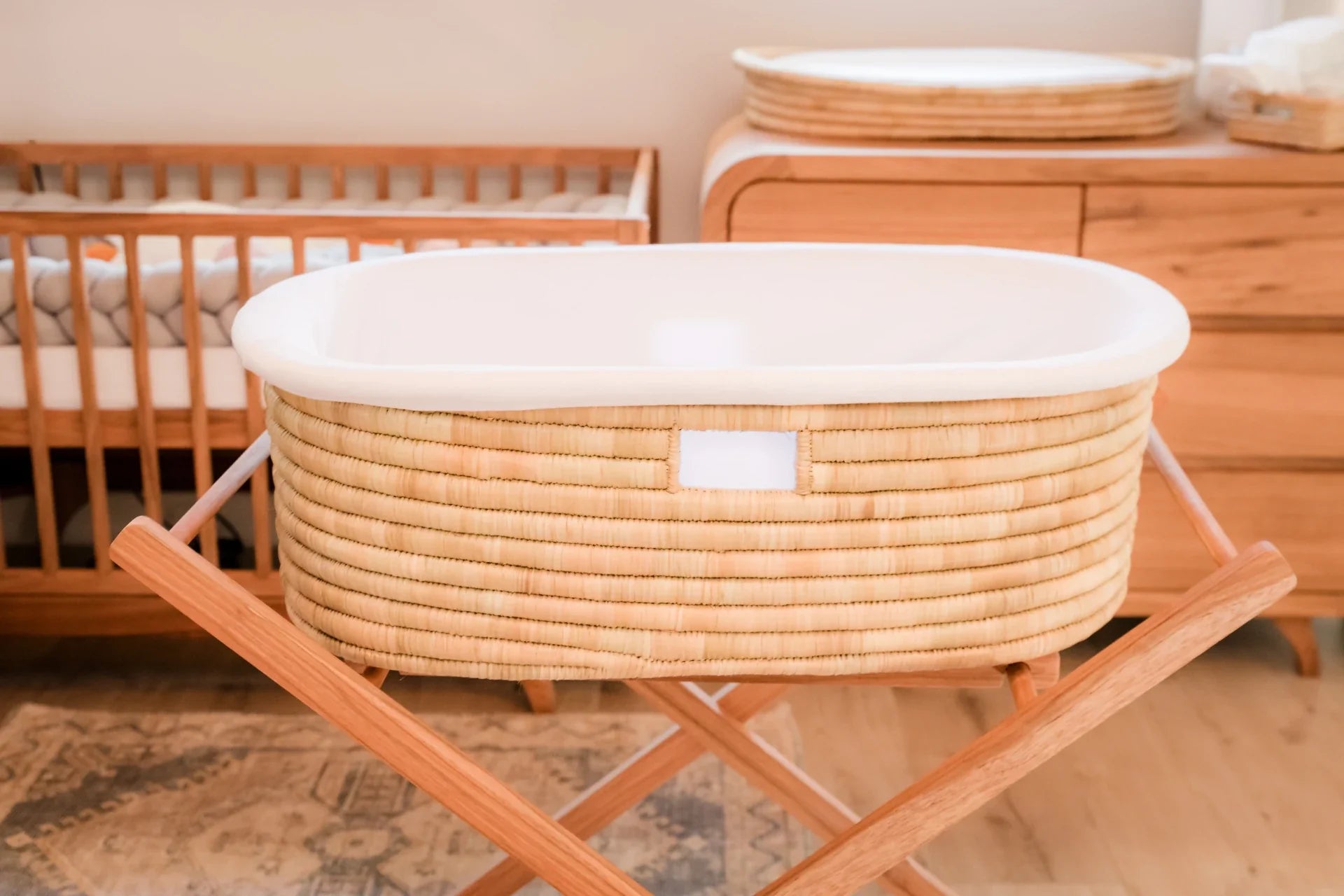October 17, 2025
A Timeless Tradition, Reimagined for the Modern Nursery
Long before the age of cot conversions and smart bassinets, parents across the world turned to a simple, beautiful object to cradle their newborns: the Moses basket. Woven from natural fibres and shaped to provide comfort and security, this timeless baby essential has remained part of parenting culture for centuries. Today, it continues to serve families who value both tradition and simplicity.
Where the Name Comes From
The Moses basket takes its name from the biblical story of Baby Moses, who was placed in a woven basket and hidden among the reeds to be protected from danger. While the historical truth behind the story has spiritual roots, the image of a child safely cradled in a woven vessel has carried through generations and cultures.
The idea of a soft, breathable, portable sleeping space continues to resonate with parents looking for a practical yet intimate place for their newborn to rest.
From Ancient Practice to Global Nursery Staple
Woven baby baskets have been used for hundreds of years across Africa, the Middle East, and parts of Europe and Asia. They were traditionally made from:
-
Palm leaves
-
Reeds
-
Wicker
-
Natural grasses
These materials allowed artisans to create lightweight, durable, and breathable sleeping spaces for babies. The baskets were often passed down through generations, carefully repaired and stored between children.
In more recent decades, the Moses basket has become a stylish and sustainable alternative to plastic bassinets. As families return to more natural materials and slower living, the handwoven basket has once again become a favourite for the early months of parenthood.
Why the Moses Basket Still Matters
Modern bassinets often include bells, whistles, and gadgets. But the Moses basket remains popular for a reason. It is:
-
Lightweight and portable – Easy to move from room to room
-
Made from natural materials – No plastic or synthetic fabrics
-
Breathable and safe – Air can circulate freely around the baby
-
Visually calming – Its soft, neutral tones fit into any nursery
It’s especially well suited for newborns, when babies crave a small, secure space that mimics the womb. Unlike larger cots, the Moses basket provides a gentle transition into the world, a place to sleep close to a parent’s side, whether during the day or overnight.
How Love Local Continues the Tradition
Our Handwoven Moses Basket is made by skilled artisans using traditional weaving techniques and natural palm leaves. Every basket is:
-
Handcrafted, not mass produced
-
Free from harsh glues, lacquers or synthetic coatings
-
Tested for airflow and shape stability
-
Paired with a firm, well-fitted mattress made for newborn safety
We honour the legacy of the Moses basket by choosing quality over speed, and by supporting artisan makers who carry this tradition forward. No two baskets are identical, each one carries its own texture and story.
Frequently Asked Questions
Can I use a Moses basket overnight?
Yes, provided the basket is well-ventilated, fitted with a firm mattress, and placed on a flat, stable surface away from hazards.
How long can my baby use a Moses basket?
Generally up to 3–4 months or until your baby starts to roll, push up, or outgrow the space. Always follow your baby’s development rather than a strict age limit.
Is palm leaf safe for babies?
Absolutely, when dried and woven correctly. Our baskets are made using air-dried palm with water-based adhesives only, no toxins, varnishes or fumes.
Can I move the basket while baby is inside?
No, for safety, always remove baby before relocating the basket. While it is light and portable, it should not be used like a carry cot.
In Summary
The Moses basket is more than a trend, it’s a piece of history, carefully reinterpreted for modern families. Its natural shape, breathable materials, and cultural legacy offer a quiet kind of confidence to new parents looking for safe, beautiful beginnings.
If you’re seeking something gentle, grounded and thoughtfully made, the Handwoven Moses Basket is a meaningful choice.


